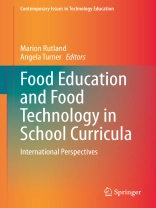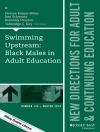This book draws together the perceptions and experiences from a range of international professionals with specific reference to food education. It presents a variety of teaching, learning and curriculum design approaches relating to food across primary, secondary and vocational school education, undergraduate initial teacher education programs, and in-service professional development support contexts.
Contributions from authors of a variety of background and countries offer insight into some of the diverse issues in food education internationally, lessons to be learned from successes and failures, including action points for the future. The book will be both scholarly and useful to teachers in primary and secondary schools.
Tabela de Conteúdo
Foreword; Stephanie Valentine.- Introduction; Marion Rutland and Angela Turner.- Part I: Food Teaching in Primary and Secondary Schools in Different Cultures.- Exploring Food Education in the English Primary Curriculum; Sue Miles-Pearson.- Reducing Challenging Behaviour and Maintaining Aboriginal and Torres Strait Islander (ATSI) and non ATSI Student Retention through Food and Exercise in Primary and Secondary Schools in New South Wales, Australia; Gillian Stuart and Angela Turner.- What is the Current State of Play for Food Education in English Secondary Schools? Ruth Seabrook and Vanessa Grafham.- A Technological Approach to Secondary Food Education in New Zealand; Wendy Slatter.- Developments in Secondary Food Education in England since the 1970s: A Personal Perspective; Angela J. Turner.- Food and Nutrition Education in Malta: a Journey across time and Subject Boundaries; Suzanne Piscopo.- Home Economics Education in the Secondary School Settings: Lessons from Education Policy on the Island of Ireland; Amanda Mc Cloat and Martin Caraher.- Part II: The Professional Identity of Food Teachers.- Positive Ingredients to Redefine Food Education in Schools in New South Wales, Australia; Donna Owen.- Where will Future Secondary Food Teachers come from in England? Sue Wood-Pearson and Suzanne Lawson.- Changing the Professional Identity of Food Technology Teachers in New South Wales, Australia; Deborah Trevallion.- Qualifications for Working in the Food Industry: Understanding all the Available Options for Students and Educators in Victoria, Australia; Bronwyn Graham.- Continuing Professional Development for Secondary Food Technology teachers in New South Wales (NSW), Australia; Carly Hart.- Food Teaching in Upper Secondary English Schools: Progression into Food Related Undergraduate Courses in Higher Education; Marion Rutland.- Part III: Current Content and Contemporary Issues.- Current Research in Nutrition in the School Curriculum in England; Sue Reeves.- A Curriculum Developer’s Perspective on the Place of Food in the Secondary School in England; David Barlex.- Population Growth and Global Food Supplies; Christopher Ritson.- Socially Acute Questions: How Biotechnology can Provide Context and Content for Discussion in Food Technology Education; Bev France.- Teaching Food Technology in a Secondary Technology Education Classroom: Exploring Ideas in Indigenous Contexts; Mishack Gumbo.- Learning Cultural, Ecological and Food Literacies though the Gumbaynggirr Pathway of Knowledge Project; Angela Turner.- A Synoptic View of Sections 1, 2 and 3; Marion Rutland and Angela Turner.
Sobre o autor
Marion Rutland is currently an Honorary Research Fellow at the University of Roehampton, London. Previous roles at the University (1993 – present) include Principal Lecturer, Course Leader for the PGCE Design and Technology Secondary programme, Curriculum Leader for the primary D&T programmes, Course Leader for school based D&T graduate teacher programme for the West London Partnership and MA Tutor and Ph D supervisor. Prior to this she taught food related subjects for 20 years in a range of secondary schools in the UK and Australia and was an Advisory Teacher for Information Communications Technology in London. Her research interests include food education in schools, curriculum development, teaching and learning in D&T and creativity.
Angela Turner is a world-class leader in Design and Technology education. She has provided ongoing research excellence to the field, building specialist research in Food Technology education through publications in double blind peer reviewed journals, book chapters and conference papers.Angela’s research is interested in the multifaceted relationship between human agency, technology choice, ecology as a material resource, and sustainable preferred futures. Her specialist research area is defined through Technacy Genre Theory (TGT). Angela’s research output informs the program of teaching she is responsible for as these are equal fields of inquiry that feed off each other, how we conceptualise technological and scientific knowledge as it relates to food in education settings from teacher education through to higher education and industry based professional development.Angela’s current research involves design-led innovation across rural and remote school communities.












